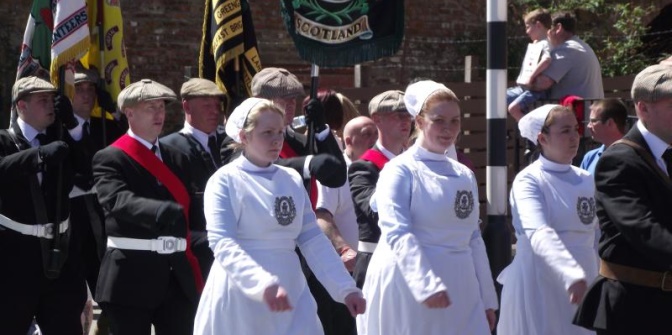 For an irreversible change like the break-up of the UK, a one-off bare majority vote is a flawed option, writes Derrick Wyatt. He suggests that the UK government should make it clear that it would only recognise an independent Scotland if there were two referendum results in favour, and if the interests of the rest of the UK were safeguarded.
For an irreversible change like the break-up of the UK, a one-off bare majority vote is a flawed option, writes Derrick Wyatt. He suggests that the UK government should make it clear that it would only recognise an independent Scotland if there were two referendum results in favour, and if the interests of the rest of the UK were safeguarded.
Scottish First Minister Nicola Sturgeon continues to press for a second referendum on Scottish independence. If all goes according to the SNP’s plan, that referendum will take place on 19 October 2023. If ‘yes’ wins by even a narrow margin, the SNP will claim it has established a democratic right to independence. Failing that, Sturgeon says that the SNP would treat the next general election as a ‘de facto’ referendum and that a win for the SNP would have the same effect as a referendum.
On 6 July, Boris Johnson refused to agree to a further referendum, and Labour appears to have ruled out a referendum within the next ten years. The current Conservative leadership candidates also reject Indyref2, or reject it for the time being. There are good arguments for this approach, but equally good arguments for questioning the assumption that a bare majority vote in a re-run of the 2014 referendum would be all it would take to guarantee Scottish independence. Neither international law nor UK law give Scotland a legal right to leave the UK. The only route to independence lies via cooperation with the UK Government and legislation of the UK Parliament.
There is no compelling reason why the UK Government and the main UK-wide opposition parties should recognise a one-off referendum as opening the route to independence. They would be well advised to say that they do not do so, and to spell out the conditions that Scotland would need to fulfil to achieve independence.
Brexit was won by a small margin of 51.9% to 48.1% in June 2016, but the effects of Brexit did not begin to be felt by the public until the beginning of 2021, when the UK had finally left the Single Market and Customs Union. The indications are that a re-run of the Brexit referendum would produce a different result: six years on from the referendum, opinion polls indicate that a majority would now vote to re-join the EU. Polls show that more people now believe Brexit has been damaging to the economy than believe it has been beneficial, and more people believe Brexit has been a mistake than believe it was the right thing to do. But Brexit is one of those events which is difficult and perhaps impossible to reverse. Scottish independence would be another event which would be irreversible in practice, even if the Scottish electorate had changed its mind by the time independence actually happened.
The analogy between Brexit and Scottish independence is not a precise one, but the central argument holds good – for an irreversible change like the break-up of the UK there are unacceptable hazards in a one-off majority vote, both for Scotland and for the UK as a whole.
The SNP would say that a right to independence following on from a one-off majority vote is in accordance with such constitutional practice as we have to date, that practice being the 2014 referendum on Scottish independence. The SNP might add that law and practice in respect of Northern Ireland also points in the direction of a one-off majority vote being sufficient for a UK nation to leave the Union. Under the Northern Ireland Act 1998, the Secretary of State shall hold a border poll ‘if at any time it appears likely to him that a majority of those voting would express a wish that Northern Ireland should cease to be part of the United Kingdom and form part of a united Ireland’. But Northern Ireland is a special case. The provision in the 1998 Act reflects the terms of the Good Friday Agreement, which provides for concurrent polls in Ireland and Northern Ireland on the question of a united Ireland. These arrangements are not in truth a precedent for a one-off majority poll to decide the issue of Scottish independence.
The 2014 referendum is admittedly a precedent, but it is a bad precedent, and it should no longer be regarded as a template for testing Scottish opinion on the issue of independence. Scottish independence would be an irrevocable constitutional decision. The whole of the UK would be affected by Scottish independence, and some effects of independence would be adverse. That is not an argument for the UK Government ruling out Scottish independence, but it is an argument for only recognising that independence if the will of the Scottish electorate appears to be settled and likely to endure, and if the interests of the rest of the UK are respected.
The costs and disadvantages to Scotland of independence have been much discussed. Those to the rest of the UK less so. Scottish independence would erode the image and influence around the world of the ‘New UK’ (NUK) which would emerge. It would create a customs border between the two countries which would be disruptive and economically damaging for residents and businesses from south as well as north of the border – exports to Scotland from the other UK nations have been estimated at 3.5% of the GDP of the rest of the UK.
Scottish independence would pose challenges both for Scotland’s own defence policy and that of the NUK. Scotland’s territory and airspace (including its territorial sea) comprise nearly 40% of that of the UK, and its exclusive economic zone comprises more than 60% of that of the UK. Aerial and maritime surveillance and defence of this area would become the responsibility of a new State with only 8% of the population and GDP of the current UK. If current SNP policy were followed, it seems likely that the NUK nuclear deterrent would have to leave Scotland, despite the fact that most Scots currently support the UK nuclear deterrent. The process would take years and would be costly, and the future of the NUK deterrent could be put in doubt. This could pose a threat to the credibility of NATO’s policy of nuclear deterrence, which will lean heavily on the nuclear weapons capabilities of the UK and France in periods when an American President is in office who is a less determined supporter of European defence than is the present President.
The UK Government and Parliament should think again about how the independence issue should be handled. They should start thinking about how to ensure – as far as it is possible to do so – that any future decision on Scottish independence would represent the settled and enduring will of the Scottish people, rather than a snapshot of public opinion on the day of the vote. They should also consider how the interests of the rest of the UK could be addressed and secured in the negotiations which would lead to independence, and whether any of those interests might be of such importance that their satisfactory protection would be essential if the UK were to recognise Scottish independence. The UK Government and Parliament might conclude that a condition for recognising the independence of Scotland should be a majority vote in two referendums, both of which would require the approval of the UK Government.
I would advocate that the two-vote scenario, advanced by former Prime Minister Sir John Major, play out as follows. If the Scottish electorate voted ‘yes’ in the first referendum, negotiations on issues such as trade and border arrangements, a defence pact, Faslane Naval Base, division of the national debt and military and other assets, and currency arrangements, would begin (for my views on how some of these issues might be resolved see here). Those negotiations might be lengthy. In due course, there would be a transition to financial autonomy, in which UK central government financial support would be gradually withdrawn, and Scotland would fully fund its own expenditure. A second referendum would take place after agreement on all outstanding matters had been reached, and after a period of Scottish financial autonomy. At that stage, the shape and feel of independence would have become clearer to the Scottish electorate. If there were a majority for independence in the second referendum, an Act of the UK Parliament would recognise the establishment of an independent Scotland, and the legal succession of the NUK to the UK.
It would be understood from the outset that the UK would only recognise Scottish independence if the legitimate interests of the rest of the UK were adequately protected by the independence settlement agreed between the parties. One area of sensitivity would be defence. The terms of a defence pact and the future of the UK nuclear deterrent would affect NATO’s defence of Europe, and NATO as well as the UK would expect some solidarity from Scotland as an aspiring NATO member. Nuclear deterrence is a cornerstone of NATO strategy. As the NATO Council put it in December 2020, NATO allies ‘are determined to ensure that NATO’s nuclear deterrent remains safe, secure, and effective, and reject any attempt to delegitimise nuclear deterrence’.
The more that UK politicians respond to SNP calls for Indyref2 with the mantra that now is not the time, the more they confirm the expectation that there will indeed be an Indyref2, and that a one-off bare majority vote for ‘yes’ in that poll will guarantee independence. It is time to move the goalposts, to ensure a more reliable mechanism for any further testing of Scottish opinion on independence, and to flag up the inescapable fact that the UK Government will only recognise an independent Scotland if the interests of the rest of the UK are respected.
____________________
 Derrick Wyatt, QC is Emeritus Professor of Law, University of Oxford, where he taught EU law, constitutional law, and public international law. He was formerly a barrister specialising in litigation before the EU Courts and is currently a Member of the International Academic Council of Fide Fundación, an independent and non-partisan Spanish think-tank.
Derrick Wyatt, QC is Emeritus Professor of Law, University of Oxford, where he taught EU law, constitutional law, and public international law. He was formerly a barrister specialising in litigation before the EU Courts and is currently a Member of the International Academic Council of Fide Fundación, an independent and non-partisan Spanish think-tank.
Photo by chris robert on Unsplash.







